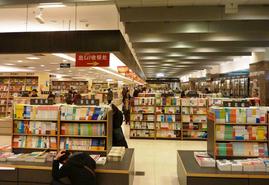
Owspace, originally from Beijing, operates four stores in China, but only one store--in a shopping center on the eastern side of the capital city--has opened for business, with daily traffic down to around 10% and sales dropping 90%.
"Even if all of our bookstores reopen, and our business is like what it is now, then we won't be able to stay in business after two to three months," said Wu Yanping, a manager at Owspace. The company's Hangzhou store has yet to confirm a date when it will reopen even as the city slowly returns to normal.
The survey also said that a third of small-scale bookstores with expenditures of less than 500,000 yuan (about $71,455) per month "would face serious cash flow problems if they remained closed for one month or if revenues did not improve quickly once they reopened," the South China Morning Post wrote.
"The recovery of physical bookstores since 2013 will be declared over, and there will be a large-scale emergency adjustment and even the closing of small and medium-sized physical bookstores in the future," said Zeng Feng, the co-author of the survey. The central government started subsidizing bookstores in 2013, recognizing their social and cultural value.
"Quite a few bookstores worry that the virus could change consumption behaviors in the long term," Zeng added. "The overwhelming majority of people who really love books are already consumers of online platforms. If physical bookstores lose even more customers, the business environment for bookstores focused on the humanities and social sciences will be increasingly difficult."

